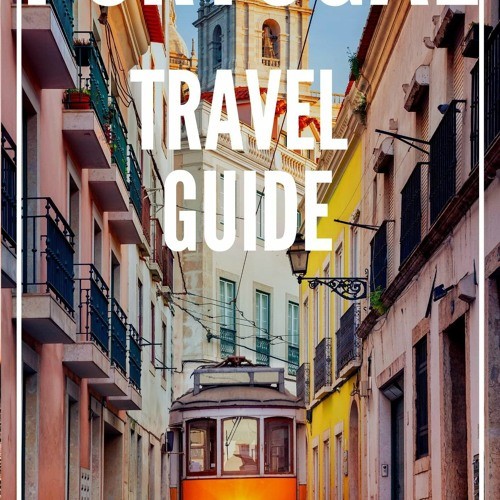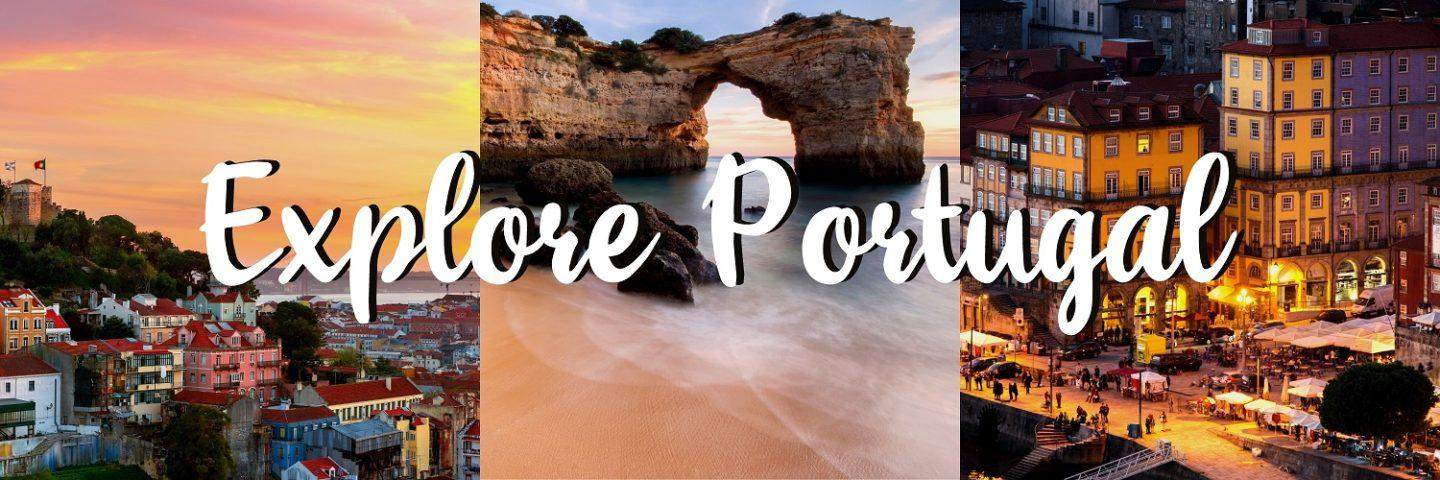Planning a trip to Portugal in 2023? You’re in for a treat. This Portugal travel guide covers everything you need to know for a memorable journey.
From historic cities and stunning coastlines to delicious food and vibrant culture, Portugal has it all. Get ready to explore the must-visit spots, delve into local traditions, and uncover hidden gems.

New Portugal travel information in 2023
In 2023, there are a few new considerations for while getting a travel guide in Portugal:
- Health and Safety: With the ongoing global situation, prioritize your health. Carry hand sanitizer, wear a mask if required, and maintain social distance.
- Digital Nomad Visa: If planning a longer stay, explore Portugal’s new visa options for remote workers.
- Sustainable Travel: Make conscious choices to reduce your carbon footprint. Opt for public transport and support local businesses.
- Technology Integration: Utilize apps and online resources for bookings and information, as digital solutions are becoming more prevalent.
- Changing Prices: Be aware of potential price fluctuations in accommodations and services due to increased demand or economic factors.
- Local Experiences: Engage with authentic experiences and local culture. This enhances your trip and supports communities.
Travel requirements
To travel to Portugal in 2023, you need to meet these requirements:
- Passport: Ensure your passport with at least six months from your departure date.
- Visa: Check Portugal’s official government website or consult the nearest Portuguese embassy for Visa's requirements.
- Health Insurance: Obtain comprehensive travel and health insurance. Some policies now offer COVID-19 coverage.
- COVID-19 Documentation: Depending on the current situation, you might need to show proof of vaccination, a negative test, or a recovery certificate.
- Return Ticket: Have a return or onward travel ticket.
- Accommodation Proof: Show confirmation of where you’ll stay, like a hotel booking or a letter from a host.
- Sufficient Funds: Demonstrate you have enough money to support your stay.
- Digital Entry Declaration: You might need to fill out a digital entry declaration form before arrival.
Best Time to Visit
The best time to visit Portugal is during the spring (April to June) or fall (September to October). Any Portugal travel guide tells why:
- Weather: Enjoy mild temperatures and plenty of sunshine, perfect for exploring cities and beaches.
- Fewer Crowds: Avoid the summer tourist rush, making for a more relaxed experience.
- Nature: See blooming flowers in spring or the changing leaves in fall.
- Festivals: Experience local events and festivals happening in these seasons.
- Lower Prices: Find more affordable accommodation and flights compared to peak summer months.
Local Cuisine
Start by visiting traditional Portuguese restaurants known as "tascas" where you can savor authentic dishes. Make sure to try regional specialties in the areas you visit.
Engage with locals and ask for food recommendations; they'll point you to the best spots and maybe even share their favorite dishes. Street food markets are also a great way to sample different flavors.
Pay attention to the seasonality of ingredients, as many Portuguese dishes are based on what's fresh and available. Don’t shy away from small eateries.
Cultural Highlights
The country is rich in culture, and there are plenty of places with the best tours of Portugal:
- Lisbon's Alfama District: Dive into the heart of Fado music and explore historic sites.
- Porto’s Ribeira District: Wander around this UNESCO-listed area and visit the famous Livraria Lello.
- Jerónimos Monastery in Lisbon: Marvel at this architectural masterpiece and learn about Portugal’s Age of Discovery.
- The Historic Centre of Évora: Walk through Roman ruins and well-preserved medieval structures.
- The University of Coimbra: Visit one of the oldest universities in the world.
- National Azulejo Museum in Lisbon: Discover the art of Portuguese ceramic tiles.
- Sintra’s Palaces: Explore the whimsical Pena Palace and the mysterious Quinta da Regaleira.
- Museum of Art, Architecture, and Technology in Lisbon: Engage with contemporary culture.
- The Historic Village of Monsanto: Experience life in a village built amongst giant boulders.
- Fado Shows in Lisbon or Porto: Immerse yourself in Portugal’s soulful music.

Outdoor Adventures
Portugal offers a variety of outdoor adventures across the country:
- Azores: Dive, hike, or whale watch in this stunning archipelago.
- Madeira: Explore levadas, mountainous terrain, and lush forests.
- Algarve: Try surfing, sea kayaking, or cliff-top hiking.
- Douro Valley: Cycle or cruise through picturesque vineyards.
- Serra da Estrela: Go skiing in winter or hiking in summer.
- Costa Vicentina: Discover pristine beaches and coastal trails.
- Peneda-Gerês National Park: Find diverse landscapes and wildlife.
- Coimbra’s Mondego River: Enjoy canoeing or riverside picnics.
- Aveiro’s Lagoons: Experience bird-watching or gondola rides.
- Sintra-Cascais Natural Park: Mix cultural visits with outdoor activities.
Also read: what to see in Lima in one day
Portugal Travel Guide: Transportation, accommodation, and staying connected
Portugal has a well-connected transport network. For more flexibility, consider renting a car. Cities like Lisbon and Porto have efficient public transport, including buses, trams, and metros.
You have a range of accommodations, from a Portugal resort guide to budget hostels. For a local experience, try guesthouses or vacation rentals. Book in advance, especially during peak seasons.
Portugal has good internet coverage. Purchase a local SIM card for your phone to stay connected and access maps and travel information on the go. Wi-Fi is widely available in many public spaces.
Hidden Gems: Uncover lesser-known places worth a visit
These spots offer a glimpse into Portugal’s history and natural beauty without the tourist bustle.
- Monsanto: This ancient village is famous for its boulder-integrated buildings.
- Aveiro: Often called the "Venice of Portugal," it’s known for its canals and art nouveau buildings.
- Sistelo: Explore terraced fields in this “Little Portuguese Tibet.”
- Penedono: Discover a well-preserved medieval castle and charming village.
- Idanha-a-Velha: Visit this historic village with Roman and medieval ruins.
- Marvão: This hilltop village offers stunning views and a majestic castle.
- Sortelha: Explore one of Portugal’s best-preserved medieval villages.
Events and Festivals
Any Portugal vacation guide includes places with music and vibrant culture.
- Carnaval: Celebrate with parades, costumes, and parties, especially in towns like Ovar and Loulé.
- Holy Week: Witness solemn processions and ceremonies in Braga and Óbidos.
- Fado Festivals: Experience Portugal’s soulful music, with events in Lisbon and Coimbra.
- Sardine Festival: Join the lively atmosphere in Lisbon during Santo António in June.
- Festa de São João: Celebrate St. John's Day with street parties in Porto in June.
- Porto’s Festa de São João: Enjoy fireworks, music, and dancing in the streets.
- Port Wine Festivals: Taste Portugal’s famous drink in Porto and the Douro Valley.
- Lisbon’s Doclisboa: Attend this international film festival in October.
- Óbidos Medieval Market: Step back in time with medieval re-enactments in July and August.
- Jazz Festivals: Attend events in Lisbon, Estoril, and Porto.
Conclusion
This Portugal travel guide promises a rich experience with its diverse landscapes, vibrant culture, and delicious cuisine.
From exploring historic cities like Lisbon and Porto to engaging in outdoor adventures in the Azores or Madeira, there’s something for every traveler.

















